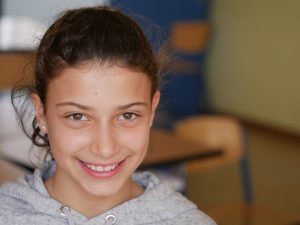 Twice exceptional, or 2e kids are believed to make up at least 6 percent of students in special education — possess high academic aptitude but struggle with ADHD, mild autism, dyslexia or other learning and behavioral challenges. They are notoriously difficult for schools to serve effectively for two reasons, say advocates, parents and some educators. Often, their intelligence masks their disability, so they are never assessed for special education or don’t receive the services best suited for them. In other cases, they’re placed in special education classes tailored to their disability but grade levels behind the school work they’re capable of.
Twice exceptional, or 2e kids are believed to make up at least 6 percent of students in special education — possess high academic aptitude but struggle with ADHD, mild autism, dyslexia or other learning and behavioral challenges. They are notoriously difficult for schools to serve effectively for two reasons, say advocates, parents and some educators. Often, their intelligence masks their disability, so they are never assessed for special education or don’t receive the services best suited for them. In other cases, they’re placed in special education classes tailored to their disability but grade levels behind the school work they’re capable of.
“We see kids whose challenges don’t show up on their report card, so they aren’t getting services,” said Jennifer Choi, a parent and founder of the advocacy group 2eNYC and a trustee of the nonprofit Twice Exceptional Children’s Advocacy. “And we see kids who are gifted, but they also have a disability, who lose the ability to participate in any sort of accelerated program because those programs often decline to provide special education services.”
But a handful of school systems across the country are searching for better ways to accommodate bright students with disabilities. Colorado trains teachers across the state in twice exceptionality, for example, while Montgomery County, Maryland, is perhaps the only school district to offer self-contained classes for students in elementary school who need both an accelerated curriculum and more support than they would receive in a mainstream classroom.
Now parent activists in New York City are fighting to get the country’s largest school system to be more responsive to 2e students.
One of the biggest barriers to educating 2e students, advocates say, is simply proving they exist. Under the federal Individuals with Disabilities Education Act, all students are entitled to the special services and accommodations necessary to enable them to learn. But to qualify for those services under the law, a student’s disability must “adversely affect educational performance.”
Schools and courts are left to determine what that means. If students are passing their classes and advancing from grade to grade, they’re more likely to be denied costly accommodations and services, which can include everything from a smaller student-teacher ratio to tutoring, to speech and occupational therapy.
Excerpted from “Twice exceptional, doubly disadvantaged? How schools struggle to serve gifted students with disabilities,” produced by The Hechinger Report. Read the full story.